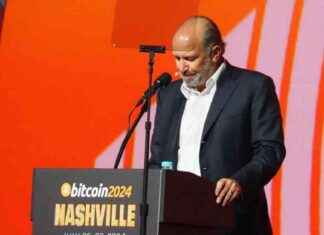MADRID, 10 Nov. (EUROPA PRESS) –
The former Spanish athletes Abel Antón and Martín Fiz were delighted that this Sunday in Athens they will commemorate the 25th anniversary of their historic double in the 1997 World Cup marathon, a time when Spain was, according to them, ” invincible Army” of long discipline thanks to both.
In an initiative of Banco Santander, the Soriano and the Vitorian, ambassadors of Sports Santander, will be in the Greek capital remembering what was one of the most glorious pages for national athletics, although Fiz, silver that day, confirmed that he will only be able to run the final meters due to a soleus injury.
“This 25 years ago would have been drama, now it’s a shame. The idea is to wait for him in the last 300 meters and I hope that after 42 kilometers he doesn’t beat me again and we go in hand in hand to remember it in a friendly way,” said Fiz this Thursday with a smile during the presentation of the initiative together with Antón and Felipe Martín, Director of Media, Online Marketing and Sponsorships of Banco Santander.
The Soriano, who snatched the world throne from the Basque that summer, considered it “an opportunity” to be able to return to the Panathinaikos Stadium where they experienced “something very beautiful and it seems unlikely that it will happen again in the Spanish marathon.” “For me, in those eight years, Spain was at the top and they called us the invincible ‘Armada’ because if it wasn’t Martín, it was me,” recalled the Castilian-Leonese, who two years later would reissue his gold medal in Seville.
Fiz thanked Banco Santander “for remembering this historic feat” of a day whose images are still “quite hard” for him. “I was trying to win. We were the two strongest and most competitive that day, but I suffered physical wear and, above all, psychological wear, knowing that he was faster than me. It was bittersweet, it was seeing that a person who lives 300 kilometers from my city was going to be my greatest rival. Now we return with another idea and as rivals and friends,” he said.
The man from Vitoria acknowledged that “yes” he spoke with his compatriot during the race, but that he played “quite a deaf ear” by telling him to “pull” to pick up Steve Moneghetti, but he preferred to go behind because he had “flatus”. “The one in front has more physical wear because the one behind can keep up. And also mentally because if you look behind a lot it seems that you are weakened. I would not change tactics and if I had done it knowing that he was going to be my main rival, he would have won the same,” he added.
“Martín was my rival in Athens, he was the best in the world and the champion, he was my reference and that’s why I went after him, I had to put up with him. He knew that after kilometer 40 I had more advantage and he knew it too. He began to push in a very difficult test because there are many kilometers uphill and if he didn’t let me it would be very difficult and he knew it. go up and he had to leave me somehow, from kilometer 25 we were alone and it was one against the other”, explained Antón.
The Soriano, who took the “step” to the marathon for the Vitorian, insisted that he was “just” that day. “And it wasn’t worth shooting, it was against my interests, shooting meant that I could later have a physical problem,” he admitted.
And from that duel was born “a rivalry that is always good in all sports,” according to Fiz. “People still have our image, but we are rivals and friends. The other day I was running through Central Park in New York and a group of Italians stopped me and said: ‘Man, Abel Antón,'” he said with a laugh.
The Castilian-Leonese does not hide that at that time there could have been “a little tension and rivalry”. “The media was a bit interested in that pique. Everyone wanted that confrontation at the World Cup in Seville and we were in the media a lot. There are also many who tell you that they started running because they saw us at that time,” he stressed.
Now, the Spanish marathon has not had two similar figures. “The Spaniards are not bad, they run in 2:06, 2:07, which are very good marks, but before the world record was 2:05 and in difficult races the African athlete did not do so well in the heat and humidity. Now Kipchoge runs in 2:01 and there is a lot of difference with the Africans”, clarified Antón. “We weren’t looking for world records, tactically we ran better than the Africans, but in commercial races it was more difficult to beat them,” added Fiz.







